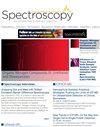电感耦合等离子体质谱法分析电子烟气溶胶微量元素样品制备过程中的污染控制,第2部分
IF 0.8
4区 化学
Q4 SPECTROSCOPY
引用次数: 0
摘要
本教程的第1部分介绍了如何通过使用适当的个人分析实践,样品制备环境建议,在样品收集和制备过程中避免玻璃和低纯度石英与样品和标准品接触,以及在样品收集和制备过程中适当选择高纯度溶剂来最大限度地减少环境污染。第2部分继续讨论通过使用高纯度聚合物材料进行样品收集和制备来最大限度地减少样品污染问题,并讨论仪器和方法检测限(lod)之间的差异。计算方法lod的可接受和适当的程序与仪器响应的可变性和即使在最干净的样品制备过程中不可避免的环境污染有关。坚持这样的做法将有助于分析师避免误报,并以高水平的信心报告结果。本文章由计算机程序翻译,如有差异,请以英文原文为准。
Contamination Control During Sample Preparation for Trace Element Analysis of Electronic Cigarette Aerosol with Inductively Coupled Plasma-Mass Spectrometry, Part 2
Part 1 of this tutorial addressed how environmental contamination may be minimized by using proper personal analytical practices, sample preparation environmental suggestions, avoidance of glass and low purity quartz contact with samples and standards during sample collection and preparation, and appropriate choices of high purity solvents during sample collection and preparation. Part 2 continues the discussion in terms of minimizing sample contamination issues by using high purity polymer materials for sample collection and preparation, as well as discuss the differences between instrument and method limits of detection (LODs). Accepted and appropriate procedures for calculating method LODs are related to variability in instrument response and unavoidable environmental contamination during even the cleanest sample preparation. Adherence to such practices will help analysts avoid false positives and report results with a high level of confidence.
求助全文
通过发布文献求助,成功后即可免费获取论文全文。
去求助
来源期刊

Spectroscopy
物理-光谱学
CiteScore
1.10
自引率
0.00%
发文量
0
审稿时长
3 months
期刊介绍:
Spectroscopy welcomes manuscripts that describe techniques and applications of all forms of spectroscopy and that are of immediate interest to users in industry, academia, and government.
 求助内容:
求助内容: 应助结果提醒方式:
应助结果提醒方式:


